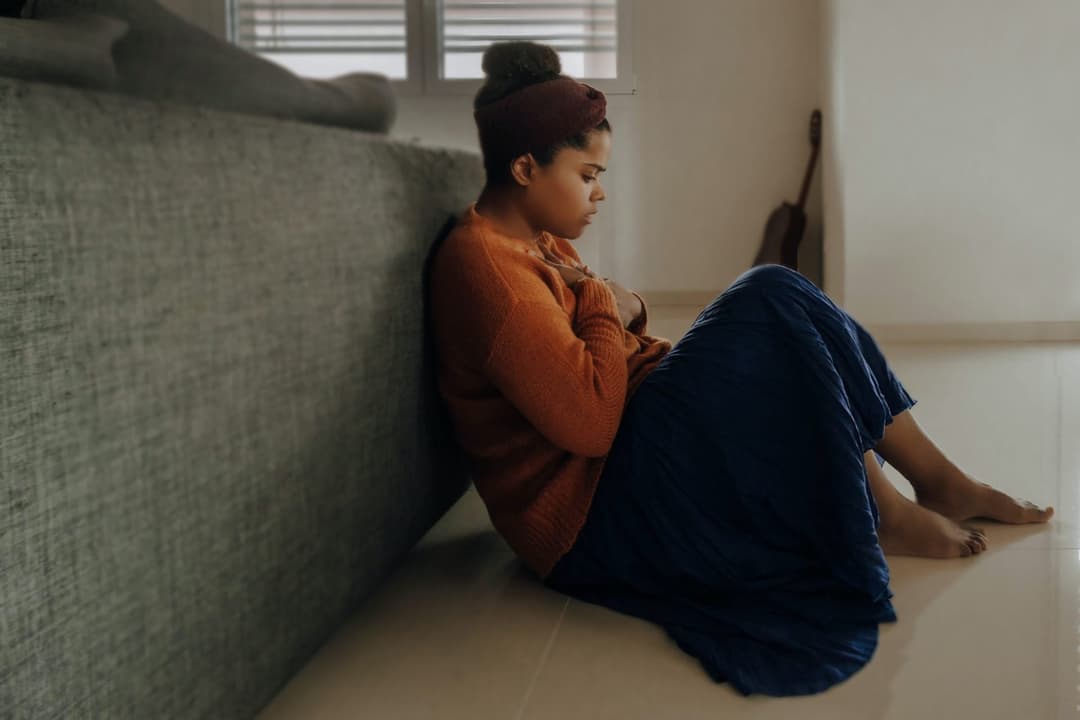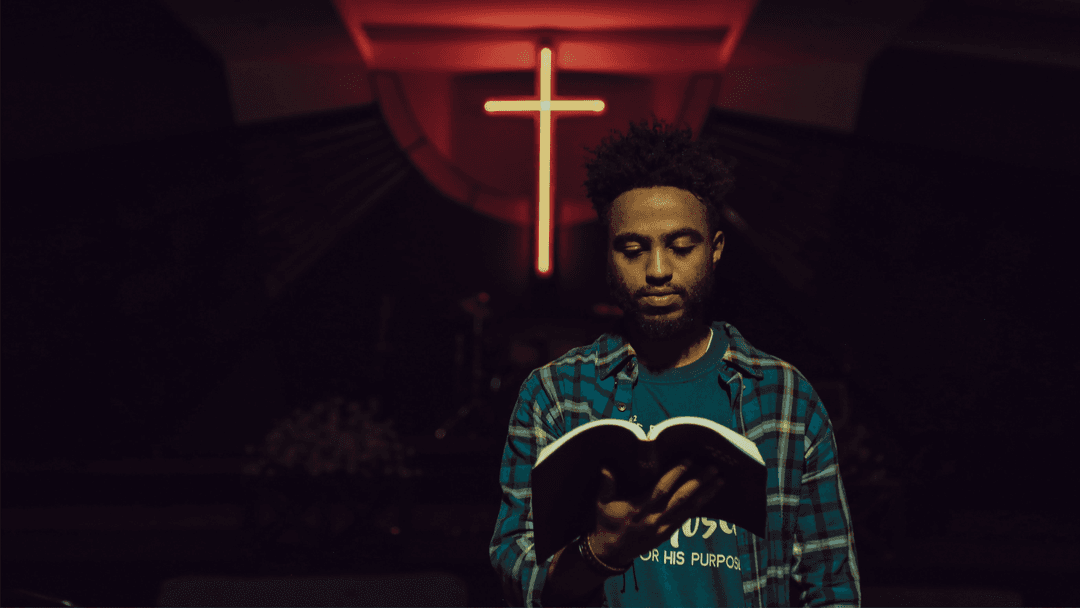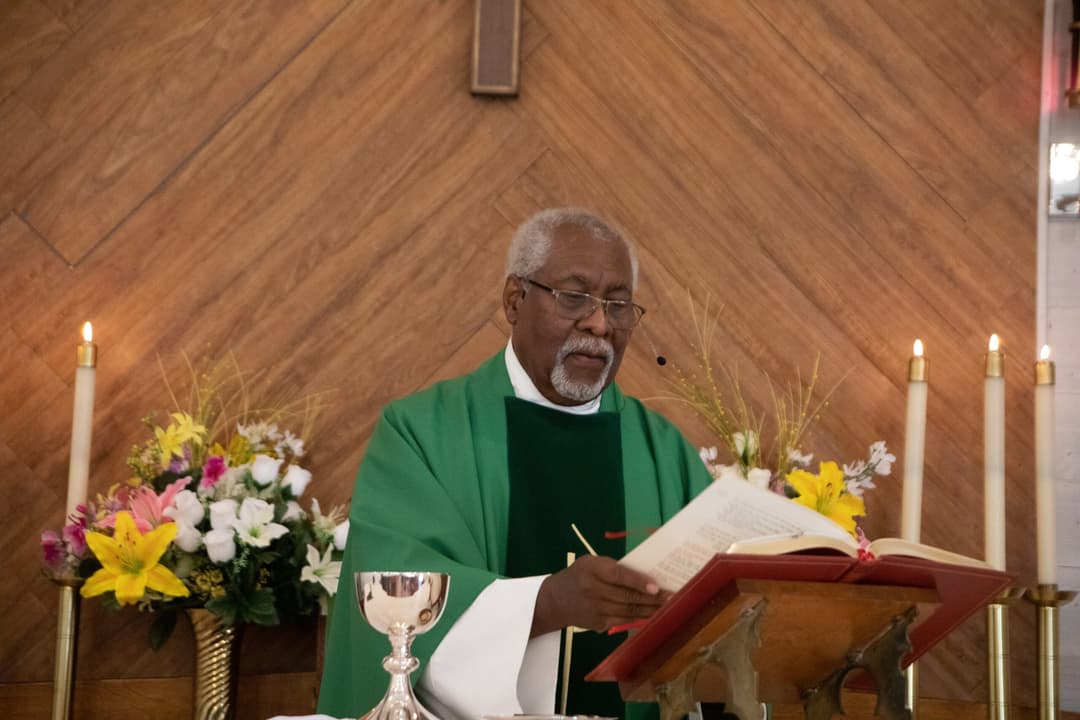Mental Health in the Black Community
Apr 28, 2020
The COVID-19 outbreak is having a devastating impact on people’s health and finances, and that’s leading to a lot of stress and anxiety.
Stephen Henderson spoke with Willie Brooks of the Detroit Wayne Integrated Health Network and Hodari Brown, a military veteran diagnosed with PTSD, anxiety and depression about ways to cope during the crisis.
Read full transcript
Stephen Henderson It’s great to see you both. So, Willie, I’m going to start with you. I think at this time, you know, somebody who’s working with people who have mental health stresses and issues has got to see that for everybody right now. This is difficult. This is unusual. It’s stressful. Whether you’re somebody who is close to someone who’s sick or has died because of this or just living in an environment where that is what’s going on around you all the time and you’re enduring all the changes that have happened in our lives since this started. I think it touches everyone in a really profound way.
Willie Brooks, CEO, Detroit Wayne Integrated Health Network Yes, it does. You know what makes it so challenging? It is. It’s a complete culture change that we have to make. It’s simply, you know, other individuals in other parts of the world already accommodated to wearing mass social distancing. They’ve dealt with these issues before. Whereas with our culture, especially in America and in the black community, it is a completely new culture, change of being isolated, having to wear a mask. Understand the importance of wearing gloves. So it is completely new. And that is why you can see the impact in Michigan, especially when count here are so drastic because of that culture change and so many other dynamics that are out there.
Stephen Henderson You know, that that cultural difference, those cultural differences that you have with African-Americans in particular. You know, we’re social people. And that’s the way we relate to the world and not just to each other. And so this idea of staying apart, this idea of not interacting physically with each other, if we do see each other, is just jarring and especially at times when you’re dealing with loss the way we are. One of the things that I find myself feeling each time someone I know dies because of this or someone who I know experiences, that loss is just a almost physical reaction in my gut that we don’t get to do the things that we would normally do to mark that. That that kind of thing happening for us.
Oh, for sure, knowing that. But we’re not even able to spend the last moments with loved ones or see loved ones or have services, as you mention, simply because we cannot gather and so many people in our community have to make the decision either to expose themselves, go out and make income or not expose themselves and not have income. So that economic disparity in both finance and health care is really being shown in this in this virus.
Stephen Henderson Yeah. Yeah. Hodari, you’re a military veteran and somebody who has dealt with anxiety and depression brought on by stress and trauma. Tell us about your experience and then tell us how you’re experiencing what’s going on now.
Hodari Brown, Military Veteran, National Business League Detroit Chapter President Yeah, I was someone was diagnosed with PTSD. For the last five years. For me, my experience comes from combat, but also the transition coming back home and trying to just de-escalate from the military environment back to what we call the regular civilian life. That was a huge transition for me. It still has been a transition in different areas, but now it’s a coronavirus. One of the things I’ve noticed myself leaving before it hit the height here in America was like, you know, people go into the store just buying everything off the shelves, like it’s the end of the world. Really put me in a fight or flight mode. It really had me going through different transitional phases. I’m trying to practice some of the things being my therapist and mental health counselors have been working on.
And even right now, one of the things that I’ve had to difficult really just trying to deal with is really just to keep appointments. So instead of having that face to face appointment with my mental therapist or my mental health counselors. We’ve had to go to Zoom calls or telephone conference calls. And you know me. And but one of the things that helps is just, you know, being able to continue to talk to someone during this period.
But it still, as you mentioned, is still tough because in African-American community, we all we’re used to those face to face interactions and those face to face communication, because that really helps in the process of really dealing with depression and anxiety as well as grief overall.
Like you mentioned, I’ve definitely dealt with a lot of losses every time I keep hearing a loss on an almost daily basis. It’s tough to really dissect it, but luckily two different contacts that they provided me when I’m able to have that 24/7 access, even just to talk things out. Not necessarily. Not necessarily always, you know, be depressed. Ah, ah, ah. Just think about what’s happened with me. But just to get stuff off my chest as I’m dealing with the grief, as I’m dealing with my own issues in my mental health battle, that helps me out a lot and keeps me going so I can keep, you know, keep us sane mind right now.
Stephen Henderson Give us a sense, Hodari, of how you’re doing. I find myself asking everybody that question.
How are you doing? How are you managing all of this?
Hodari Brown, Military Veteran, National Business League Detroit Chapter President So it is like I say, the last couple days has been a little tough. I lost a good friend of mine. He was one of my fraternity brothers recently, and that set me back a little. But as Mr. Brooks mentioned, you know, where is a disparity? Because I asked if I’ll have to. I work for the Department of Veteran Affairs in the hospital. So I still have to go to work on a daily basis to make sure the hospital is clean and make sure we’re able to deal with our first time in our history to veterans hospitals that actually are accepting non veterans into the hospital facility. So a lot of areas of the hospital was shut down to deal with covered 96 myself. I’m still having to go out there and make sure I put food on the table for my family myself. So mentally it’s been draining lately, but mentally and emotionally and physically, I’m in good health. But it’s just a mental and emotional drain lately has been really taking its toll on me here.
Stephen Henderson Willie Brooks, talk about the role that your agency is playing with people like Hodari Brown right now, the kinds of things that you’re having to make available. Talk about the digital divide and how that makes it more difficult to adapt to some of the strictures that we have to get used to.
Willie Brooks, CEO, Detroit Wayne Integrated Health Network Well, you know, as you know, we deal with individuals with mental illness, substance use, developmental disabilities, and individuals that we serve are more subject to occurring this disease. And therefore, not only that, they not only require physical health care, but they require the mental health care that goes with it. At Detroit Wayne, we have on our website ways to help individuals cope. Anyone can get on our Web site, dwihn.org and receive information on how to cope. We’re also providing personal protection equipment. You know, you hear that term PPE to our providers to help them through this process. And there’s a couple of things that that people should understand. One, this is not a two week process.
This is going to change the way we interact for at least 12 months to probably 24 months. Even if a vaccine is found soon, it’s going to take 12 to 18 months to get that out. So we have to prepare ourselves for the future. Come wearing a mask. Social distancing, taking precautions are going to be a part of our life, just as it is other parts of the world that that we’re looking at. Now we have to prepare ourselves for that. The other thing that makes it difficult is what we’re dealing with. Something that is almost like terrorism is that it’s a random act of violence. No one knows who’s going to hit. So even if the numbers, for example, of Covid-19, do not exceed the deaths for heart failure, the fact that it’s so unpredictable and that it could hit any age range, any person, it brings on a sense of terror. So you have to try to correct that with having a lot of facts and reality in your life. You know, it is not helpful to look at Covid-19 from the time you wake up to the time you go to sleep and just looking at the numbers. Life has to continue in some form. You have to have some form of normality in your life and you have to try and put things in perspective.
Stephen Henderson Yeah, you know, that’s something I find myself struggling with right now. You know, the first thing I do when I wake up is look at my social media feeds. I always do that. But right now, what that means is taking in what’s happened overnight, taking in the news of the day about coronavirus. The last thing I do before I go to bed each night is look at my social feeds. And it’s the same thing. And the mental wear of that over the last five weeks I’m finding overwhelming. I just can’t imagine what that will feel like a month from now or as you point out, a year from then.
Willie Brooks, CEO, Detroit Wayne Integrated Health Network And you have to keep in mind that the majority of Covid-19 cases are mild and moderate. That’s why did the hospitals are sending so many people home who test positive and just simply tell them to quarantine themselves. There is that that small population, as we know, that it has fatal impacts on. And even though it is fatal, we still have to learn how to try to put things in somewhat of perspective. You know, because right now we have more people who are dying from heart disease than Covid-19.
Stephen Henderson Sure.
Willie Brooks, CEO, Detroit Wayne Integrated Health Network But you’re not waking up every day and counting everyone who die with heart disease. You know, you’re not doing that. So. So while it is a true fact, we also would have to look at the reality of the situation and learn to deal with it. Is this so many people have to do work because again, this is not a two week situation. This is more like a two year situation. And we have to prepare ourselves for the long run. And I’m telling my staff, I need a two year plan of how we cope with this. Two years, meaning that we’re going to see individuals and staff who acquired the disease and how we’re going to handle it for the next two years.
Stephen Henderson Hodari Brown, we’ve got just a few seconds left. I want you to talk about what you would say to someone who is really stressed out right now, someone who is experiencing anxiety or depression as a result of trauma the way you do. What would your advice be?
Hodari Brown, Military Veteran, National Business League Detroit Chapter President My advice to someone who is experiencing trauma, depression, anxiety or even overall grief right now is to really seek out help. There is many contacts out there. The Detroit Wayne County Integrated Health Authority is one thing. You also can reach out to an organization I work with, called NAMI National Alliance of Mental Illness. And then, reach out to your own personal care provider and see what resources they might have for you. And contacts that may have just therapies and counselors are still on the job doing virtual calls, doing telephone appointments and things.
So, really, and then, talk to your friends and family, you know, reach out to them on a regular basis, either through telephone. Go beyond just text messages and social media, even do a Zoom call and other teleconferences. Those are really helpful during this time, I find myself when I’m down or I’m still in a little bit and still a little bit, anxiety, depression coming on. I’m just reaching out to someone that I could talk to. And I know they just listen. Those are some important things I would encourage you to do. But don’t go through it by yourself, you know, because everybody right now in this pandemic is really going through a little bit of grief, anxiety, depression at some point or another.
Stephen Henderson It’s OK to say you need help. That’s great advice. Hodari Brown and Willie Brooks, thanks for being here on American Black Journal.
Stay Connected
Subscribe to Detroit PBS YouTube Channel & Don’t miss American Black Journal on Tuesday at 7:30 p.m. and Sunday at 9:30 a.m. on Detroit PBS, WTVS-Channel 56.
Catch the daily conversations on our website, Facebook, Twitter, and Instagram @amblackjournal.
Related Posts
Leave a Reply
Your email address will not be published. Required fields are marked*



























